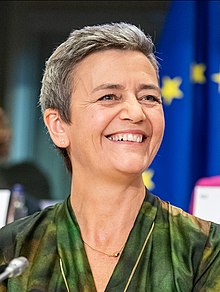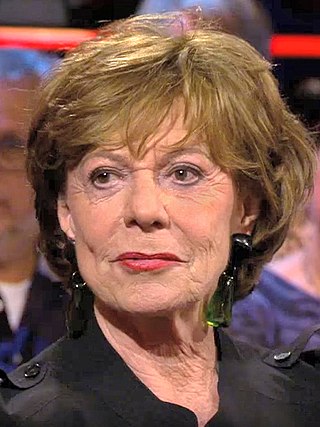
Neelie Kroes is a retired Dutch politician of the People's Party for Freedom and Democracy (VVD) and businessperson who served as European Commissioner from 22 November 2004 to 1 November 2014.

Viviane Adélaïde Reding is a Luxembourgish politician and a former Member of the European Parliament (MEP) from Luxembourg. She is a member of the Christian Social People's Party, part of the European People's Party. She previously served as European Commissioner for Education and Culture from 1999 to 2004, European Commissioner for Information Society and Media from 2004 to 2010 and European Commissioner for Justice, Fundamental Rights and Citizenship from 2010 to 2014.
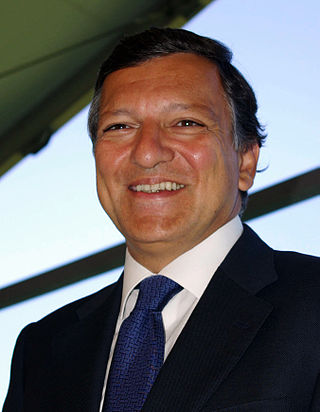
The Barroso Commission was the European Commission in office from 22 November 2004 until 31 October 2014. Its president was José Manuel Barroso, who presided over 27 other commissioners. On 16 September 2009 Barroso was re-elected by the European Parliament for a further five years and his Commission was approved to take office on 9 February 2010.

The Commissioner for Competition is the member of the European Commission responsible for competition. The current commissioner is Margrethe Vestager (ALDE).

Margrethe Vestager is a Danish politician currently serving as Executive Vice President of the European Commission for A Europe Fit for the Digital Age since December 2019 and European Commissioner for Competition since 2014. Vestager is a member of the Danish Social Liberal Party, and of the Alliance of Liberals and Democrats for Europe Party (ALDE) on the European level.

The Directorate-General for Communications Networks, Content and Technology is a Directorate-General of the European Commission and is responsible for EU investment in research, innovation and development of critical digital technologies.

The Roaming Regulation 2022 bans roaming charges (Eurotariff) within the European Economic Area (EEA), which consists of the member states of the European Union, Iceland, Liechtenstein and Norway. This regulates both the charges mobile network operator can impose on its subscribers for using telephone and data services outside of the network's member state, and the wholesale rates networks can charge each other to allow their subscribers access to each other's networks. The 2012 Regulation was recast in 2022.
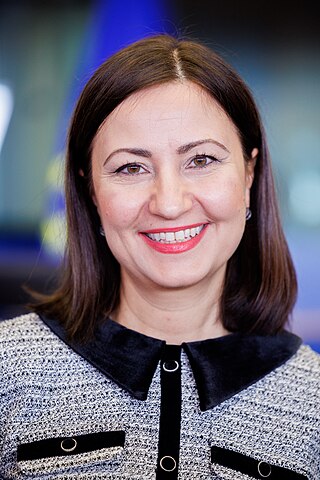
The European Commissioner for Innovation, Research, Culture, Education and Youth is a member of the European Commission. The portfolio was previously titled European Commissioner for Education, Culture, Youth and Sport until 2019 when it was merged with the European Commissioner for Research, Science and Innovation to form its current title.

The Data Retention Directive, later declared invalid by the European Court of Justice, was at first passed on 15 March 2006 and regulated data retention, where data has been generated or processed in connection with the provision of publicly available electronic communications services or of public communications networks. It amended the Directive on Privacy and Electronic Communications. According to the Data Retention Directive, EU member states had to store information on all citizens' telecommunications data for a minimum of six months and at most twenty-four months, to be delivered on demand to police authorities.
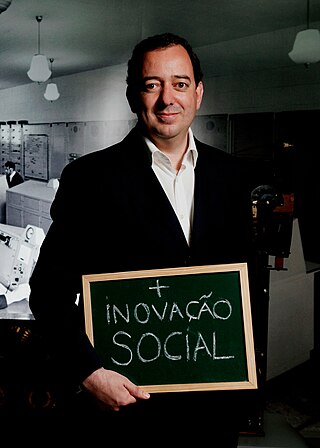
Diogo Vasconcelos was a Portuguese politician, who focused his work on innovation and on the fundamental role of ICT and next generation broadband for fostering innovation and supporting new decentralized models to address some of the major global societal challenges of the 21st century. Diogo addressed such issues as climate change, urbanization, globalization, ageing population, sustainable prosperity, democracy and citizen’s participation, etc. During his career, he worked with different governments in Europe and the Middle East, with the European Commission, with the UN’s High Commissioner for the Alliance of Civilizations and the European Investment Bank, OECD, among others.
One Single Tariff is a European Citizens' Initiative against roaming in Europe. One Single Tariff's precise objective is to erase all barriers to phone calls within the EU by ending all roaming fees. It is the second European Citizens' Initiative to have been registered, on May 10, 2012, just one day after the initiative Fraternité 2020, which was presented by the European Commission on Europe Day. To be successful, it had to collect 1 million signatures before December 3, 2013, but it failed.
The Digital Champions are appointed by each European Union Member State to help them and the European Commission promote the benefits of an inclusive digital society. The Digital Champions act locally. They work with citizens, communities, businesses, governments, and academia. They do so by helping individuals become digital, by promoting e-skills in education, fostering e-government services, encouraging entrepreneurship, supporting businesses to embrace new technologies and be more competitive, contributing to research and innovation. They also advise the European Commission on the implementation of the Digital Agenda for Europe. The European Commission regularly interact with the Digital Champions and this exchange provides a valuable platform to discuss, compare and expand action at grass-roots level. The Digital Champions meet at least twice a year.

Mariya Ivanova Gabriel is a Bulgarian politician and a member of the GERB party, serving as Deputy Prime Minister of Bulgaria and Minister of Foreign Affairs since 2023. She served as European Commissioner for Innovation, Research, Culture, Education and Youth between December 2019 and May 2023 and as a Member of the European Parliament (MEP) from 2009 to 2017.
Electronic signature allows users to electronically perform the actions for which they previously had to give a signature on paper. Estonia's digital signature system is the foundation for some of its most popular e-services including registering a company online, e-banks, the e-voting system and electronic tax filing – essentially any services that require signatures to prove their validity.
On June 4, 2012, the Netherlands became the first country in Europe and the second in the world, after Chile, to enact a network neutrality law. The main net neutrality provision of this law requires that "Providers of public electronic communication networks used to provide Internet access services as well as providers of Internet access services will not hinder or slow down services or applications on the Internet".

The Juncker Commission was the European Commission in office from 1 November 2014 to 30 November 2019. Its president was Jean-Claude Juncker, who presided over 27 other commissioners. In July 2014, Juncker was officially elected to succeed José Manuel Barroso, who completed his second five-year term in that year.
The Startup Europe Summit (SES) is a pop-up conference that brings together entrepreneurs, investors, academics, policy makers and major corporates. It showcases new EU-funded initiatives designed to boost Europe's tech and web startups. The first SES was held in Berlin in 2015.
The Net Neutrality Regulation 2015 is a Regulation in EU law where article 3(3) lays down measures concerning open internet access.
The Regional Roaming Agreement, formally the Agreement on the price reduction of the roaming services in public mobile communications networks in the Western Balkans region, regulates the imposition of roaming charges within the countries in the Western Balkans; Albania, Kosovo, Bosnia and Herzegovina, North Macedonia, Montenegro and Serbia. The agreement covers both the charges mobile network operators can impose on their subscribers for using telephone and data services outside of the network's member state, and the wholesale rates networks can charge each other to allow their subscribers access to each other's networks.

